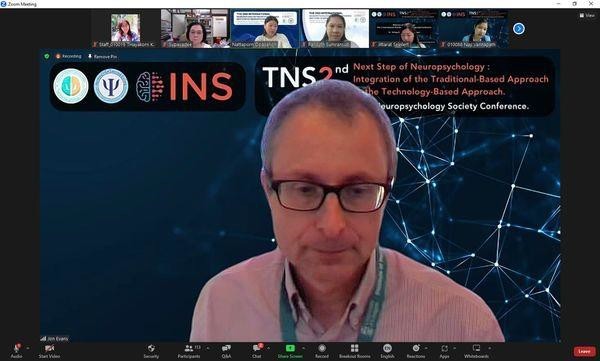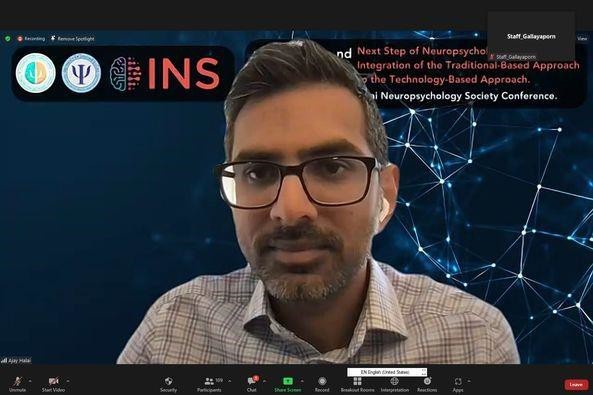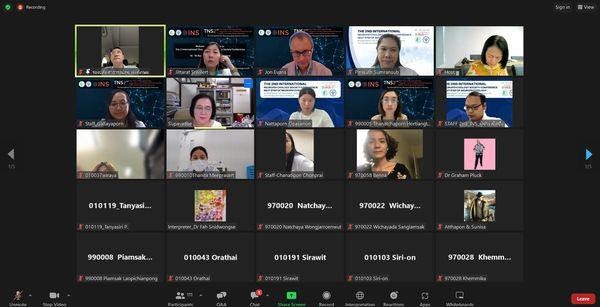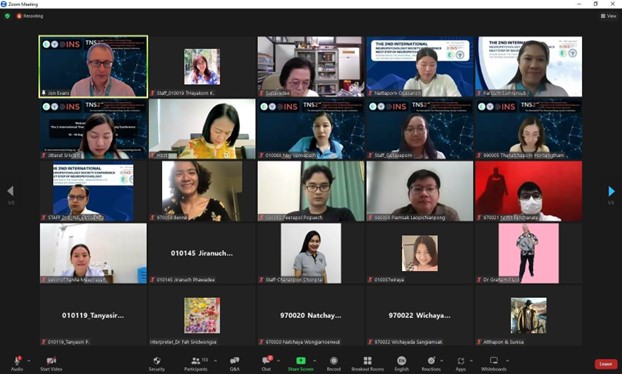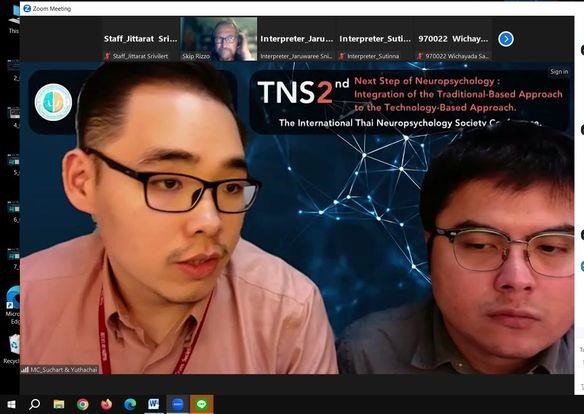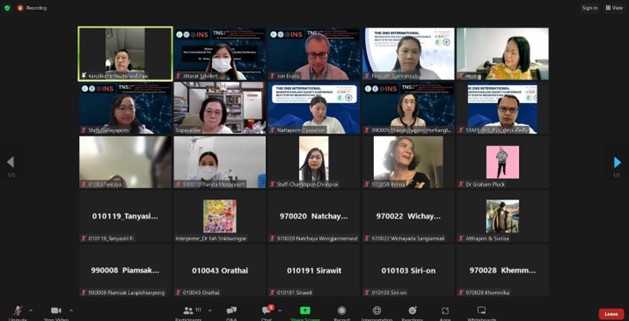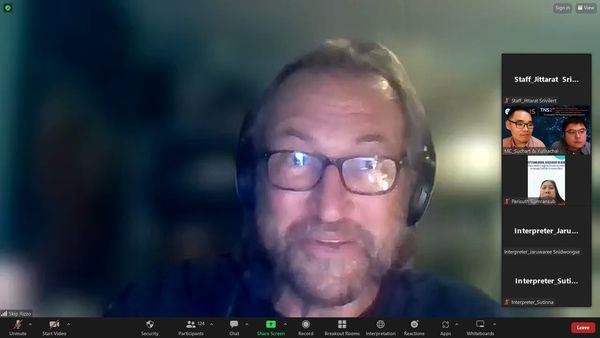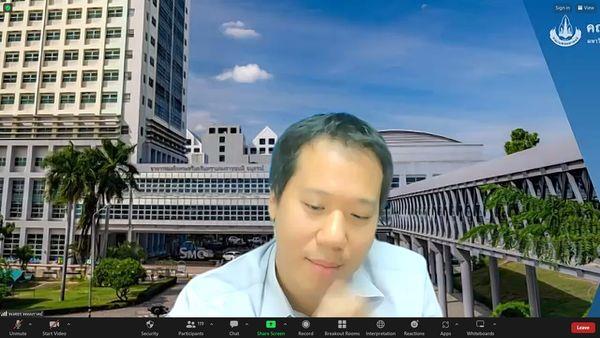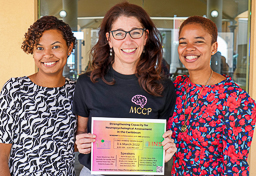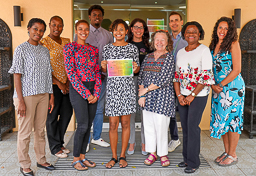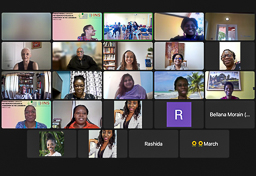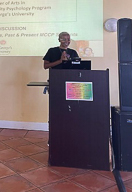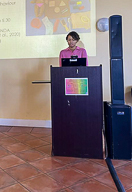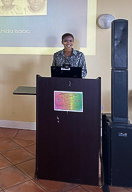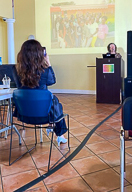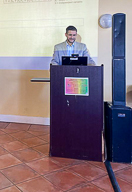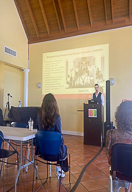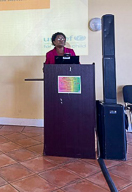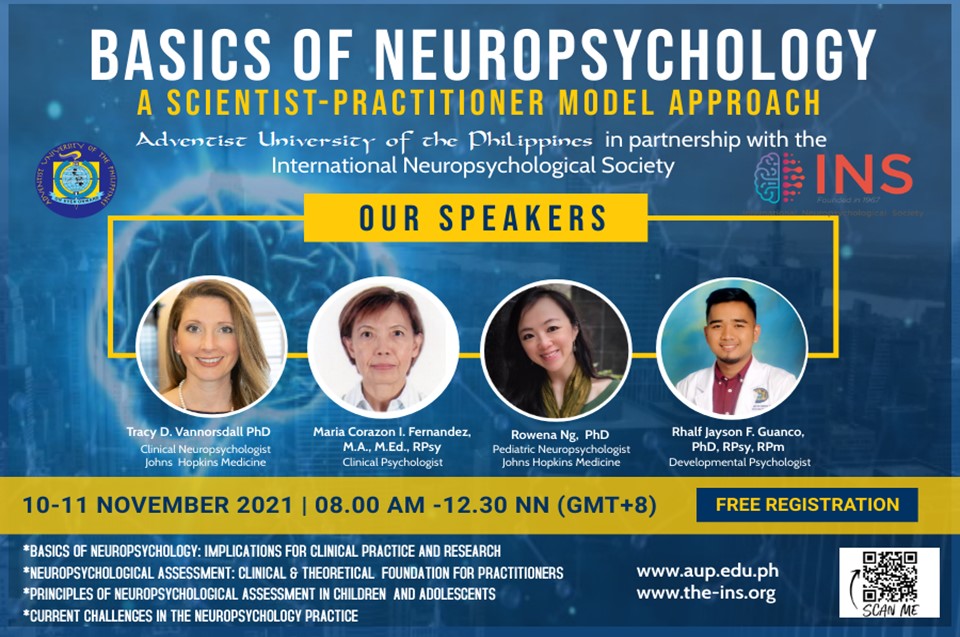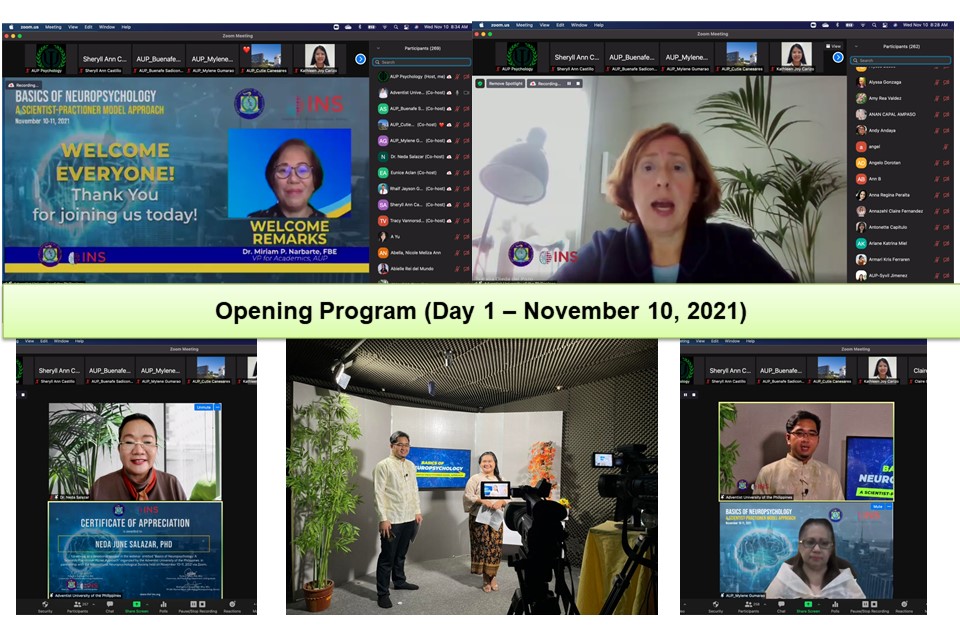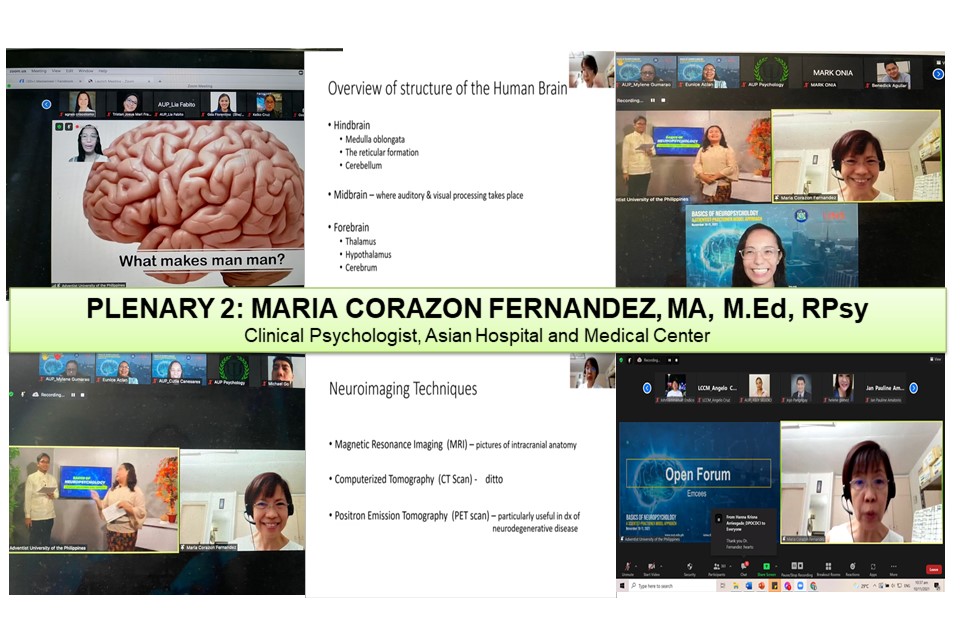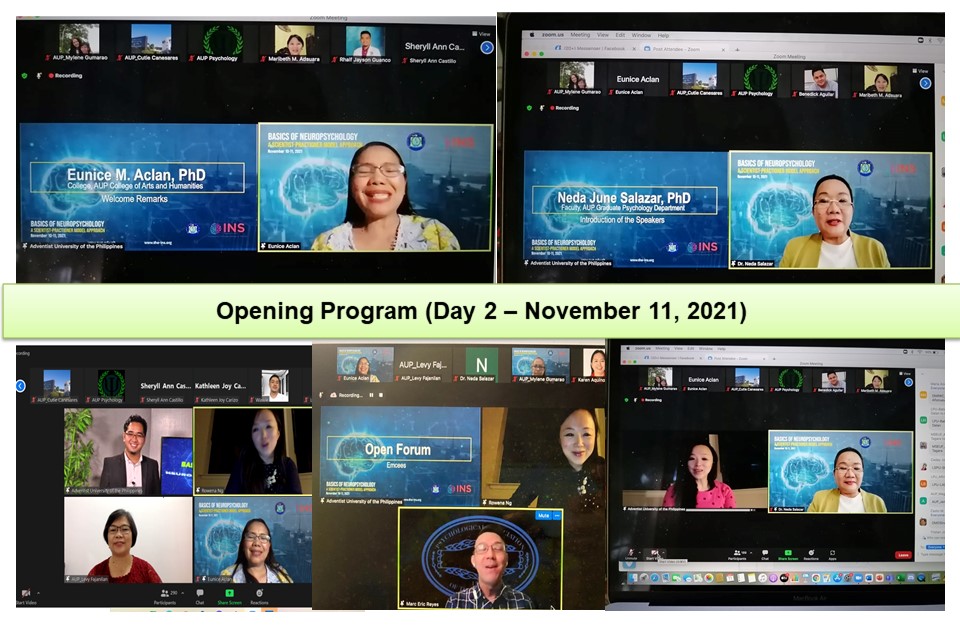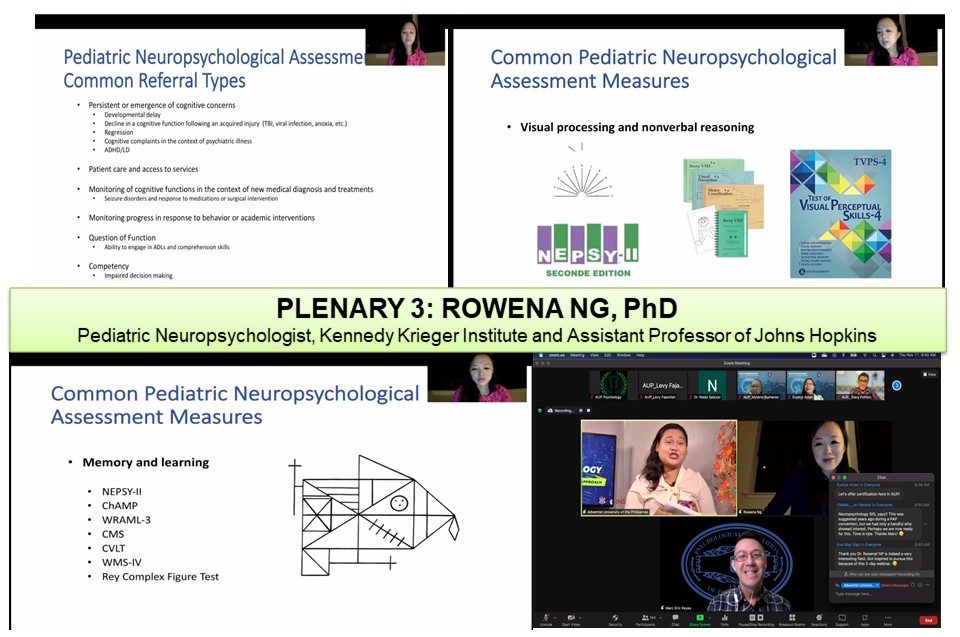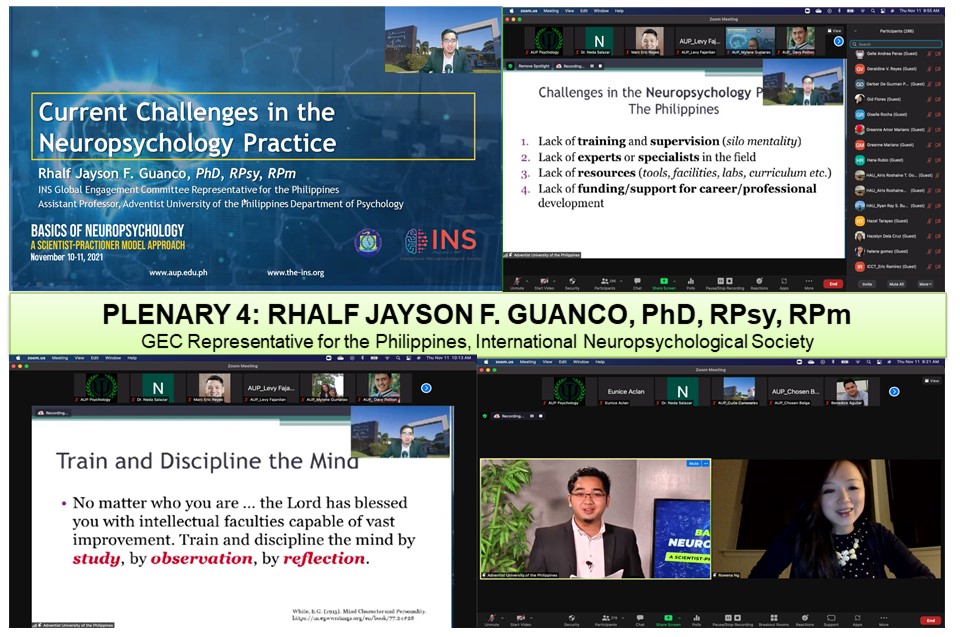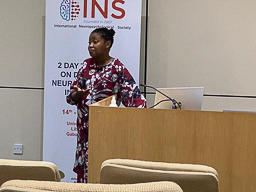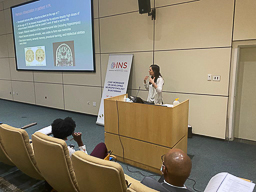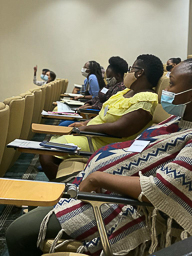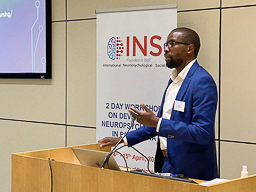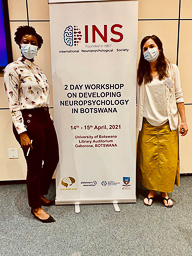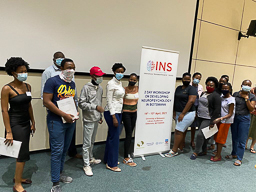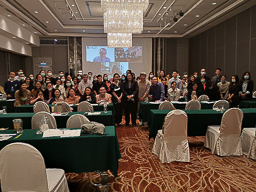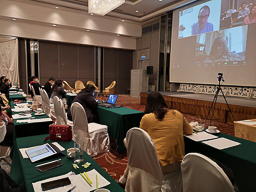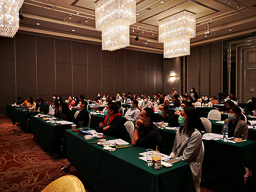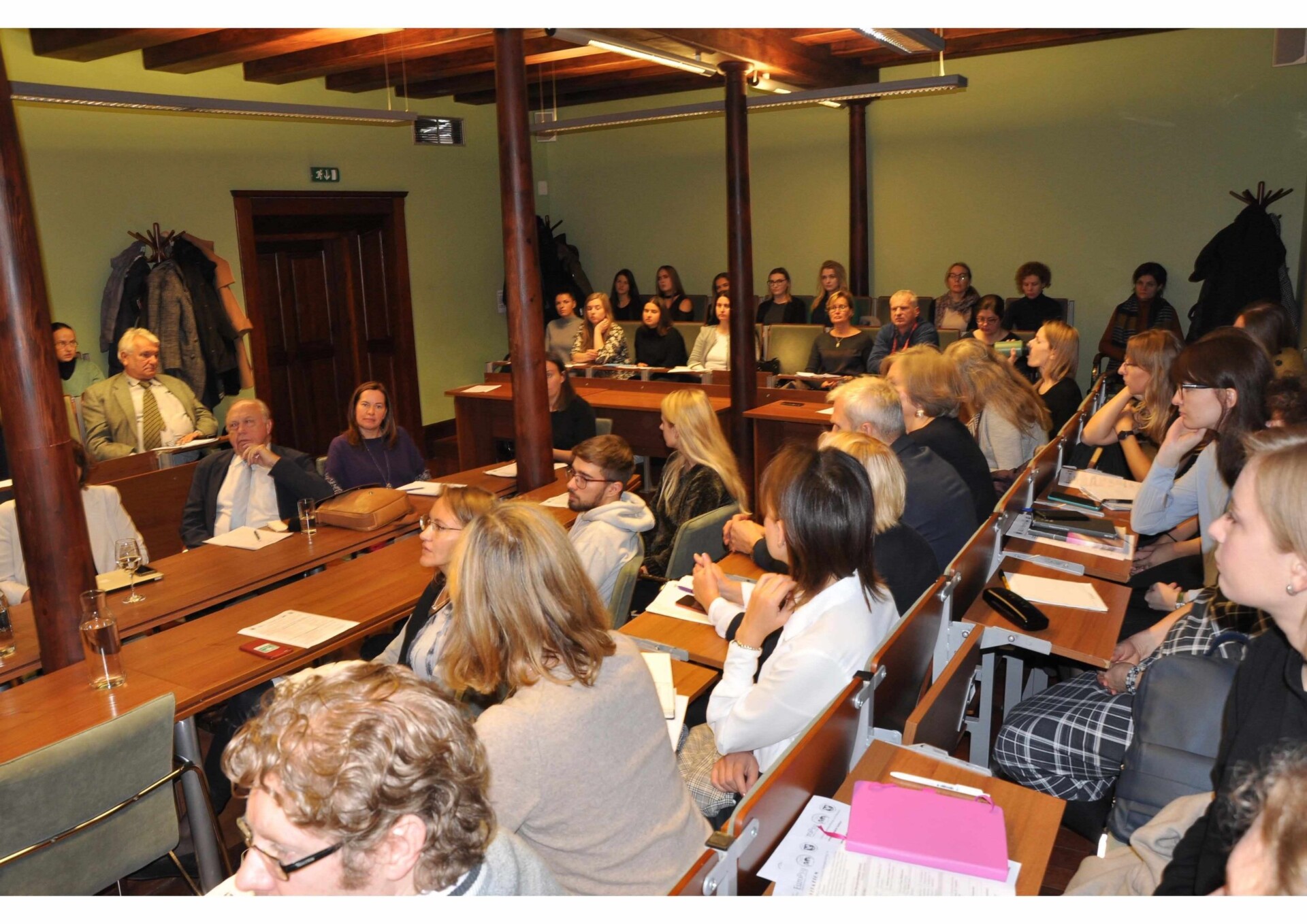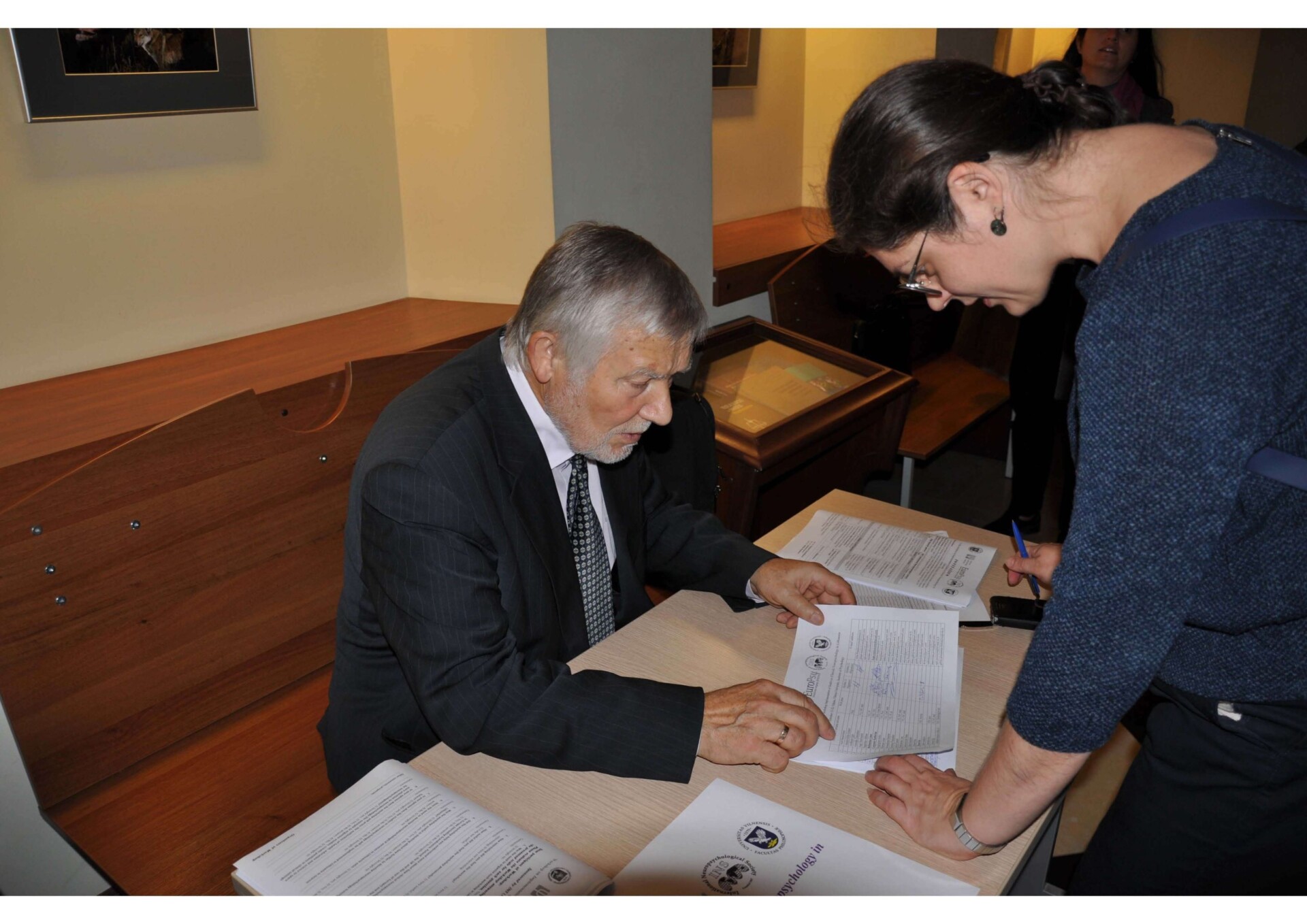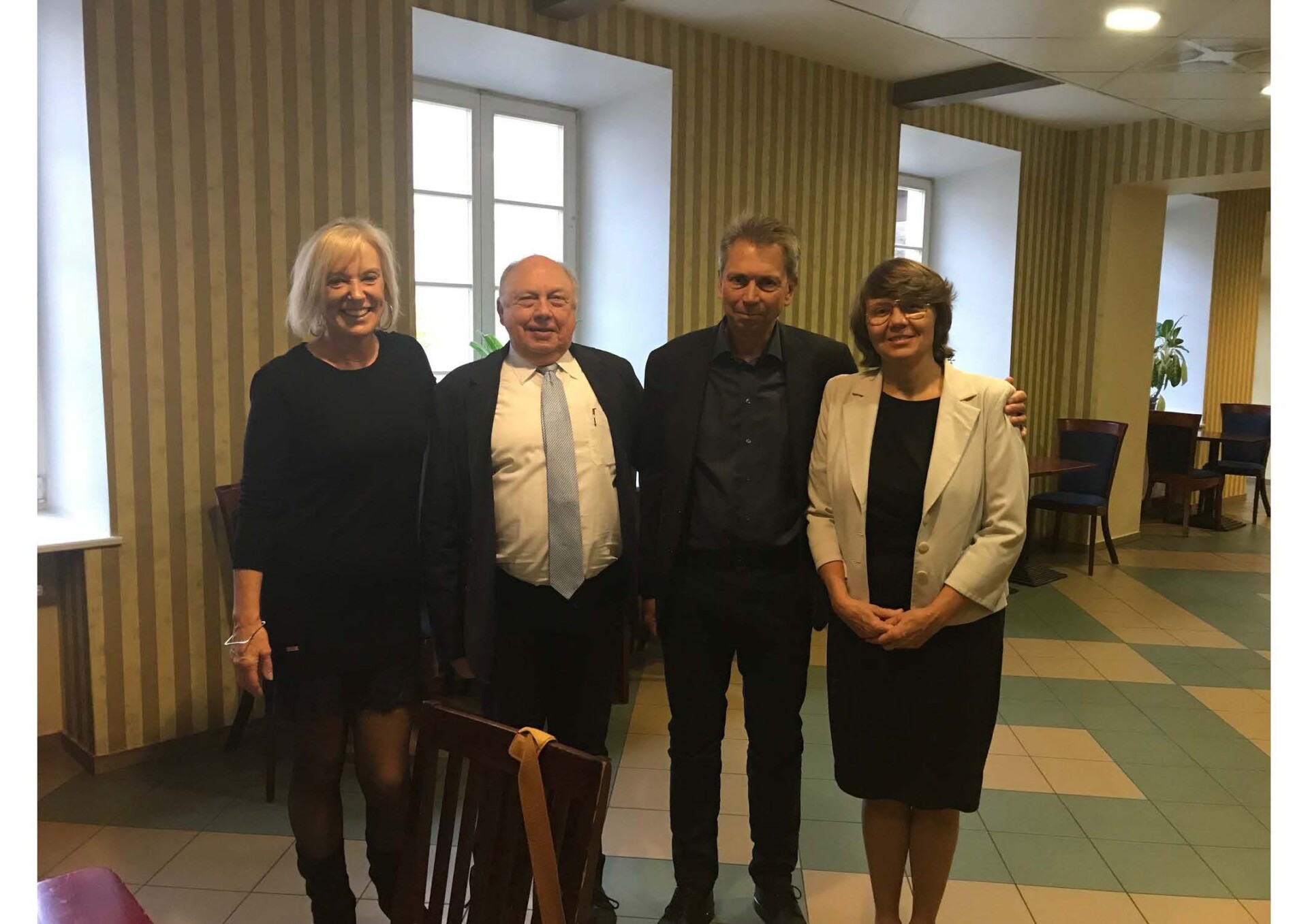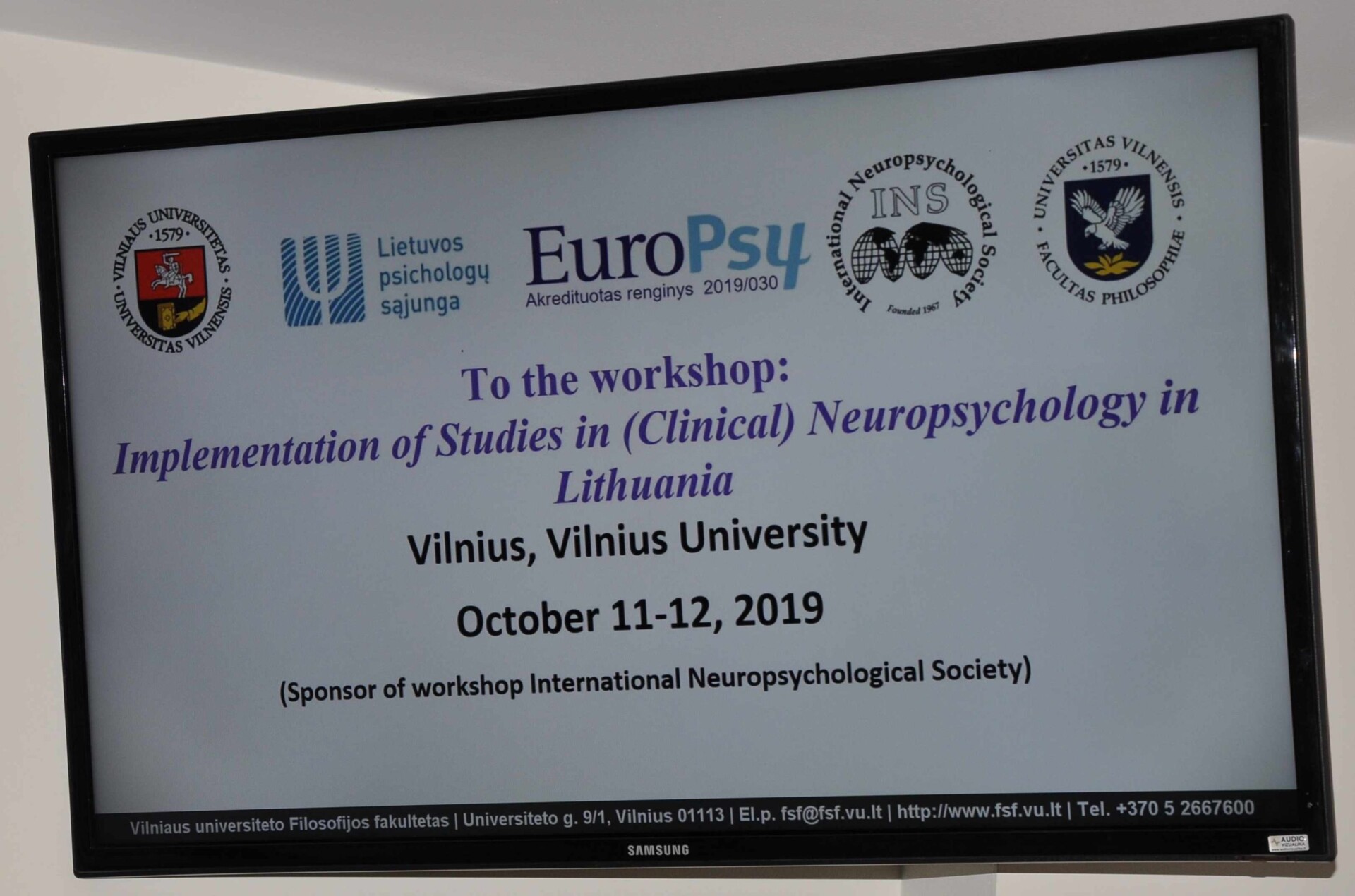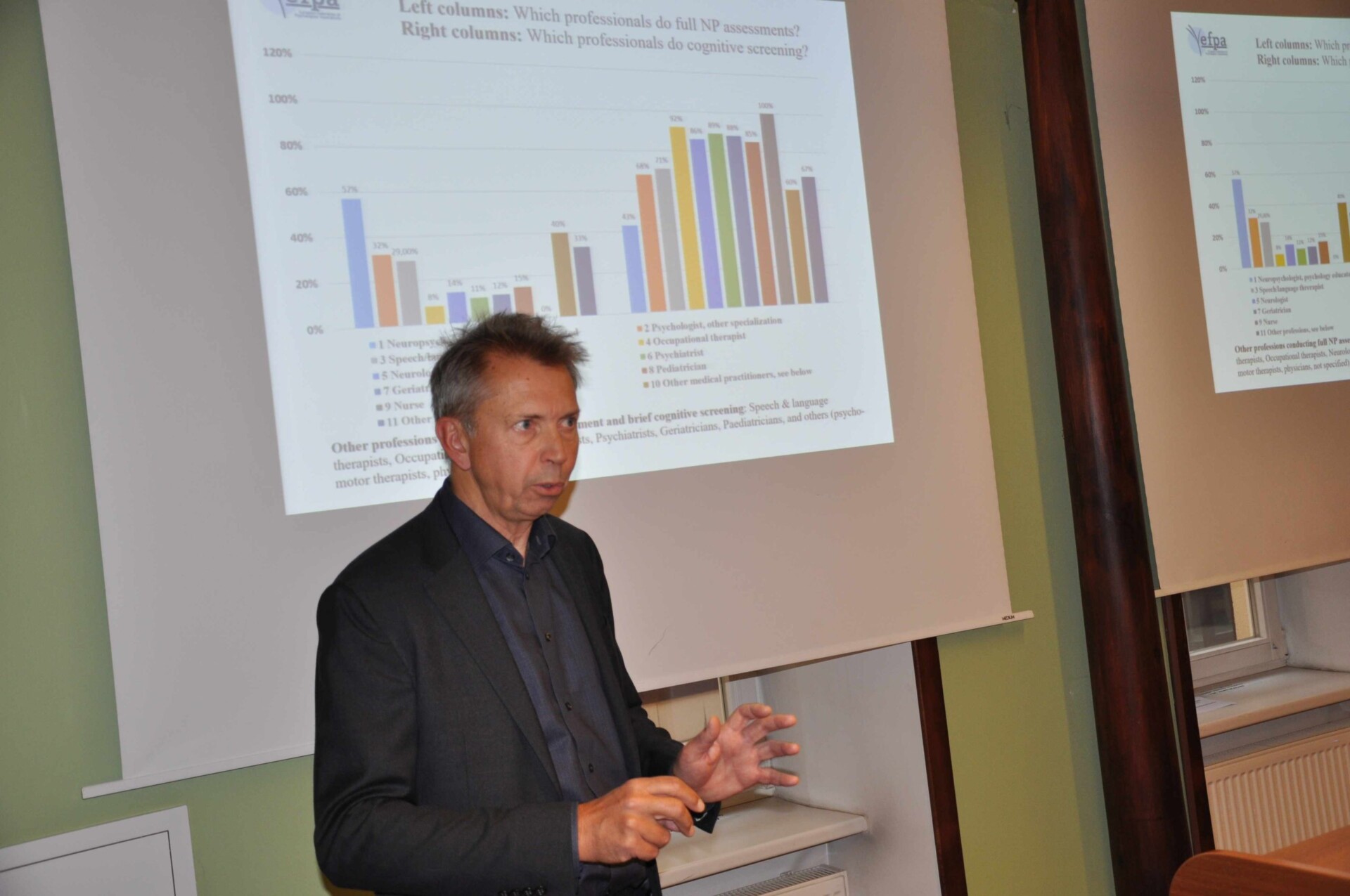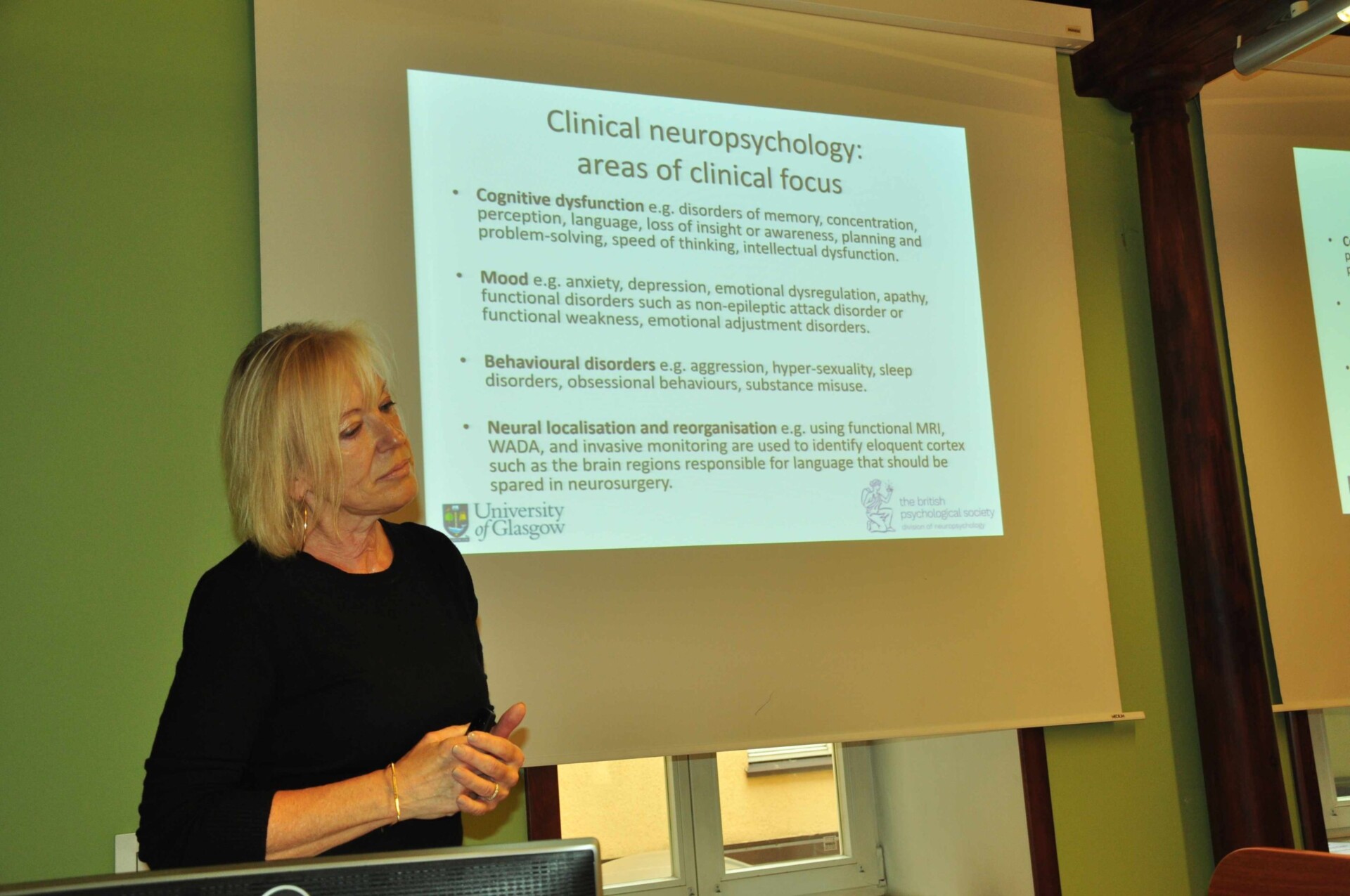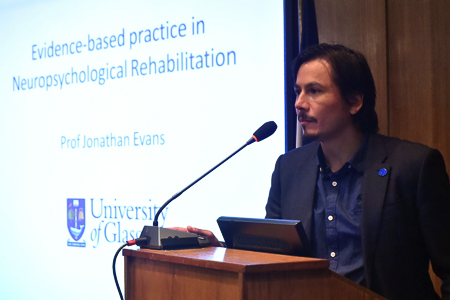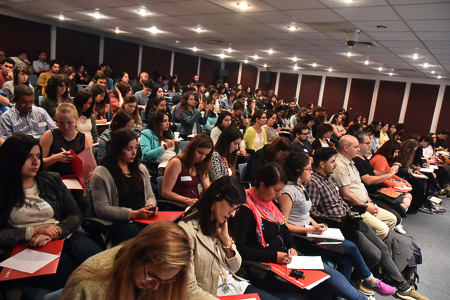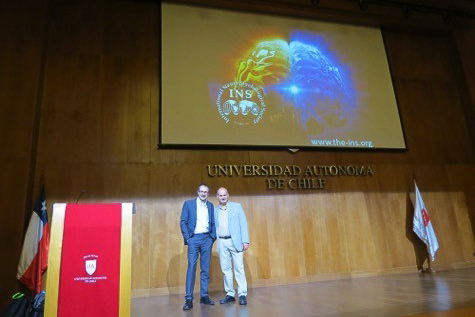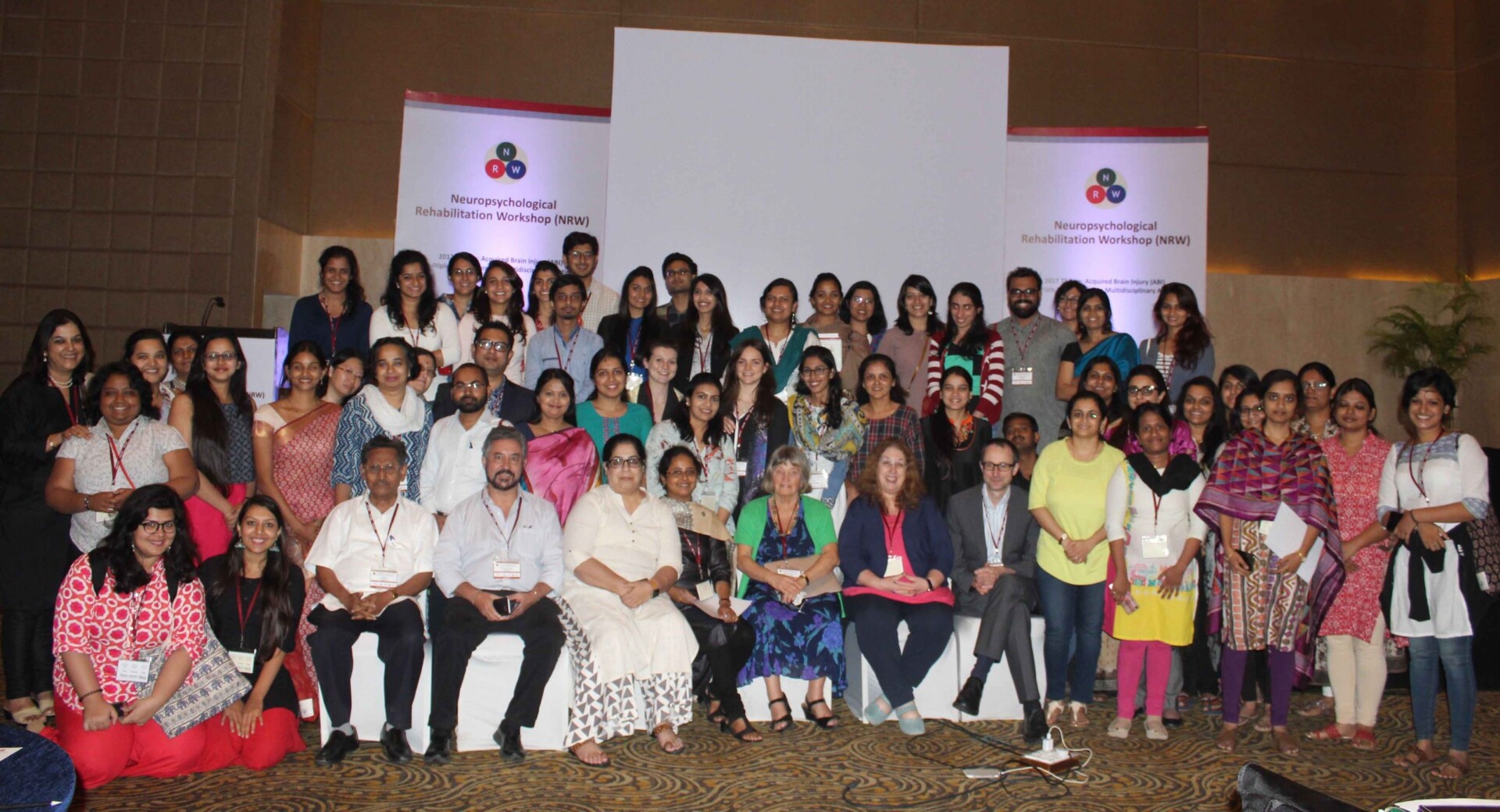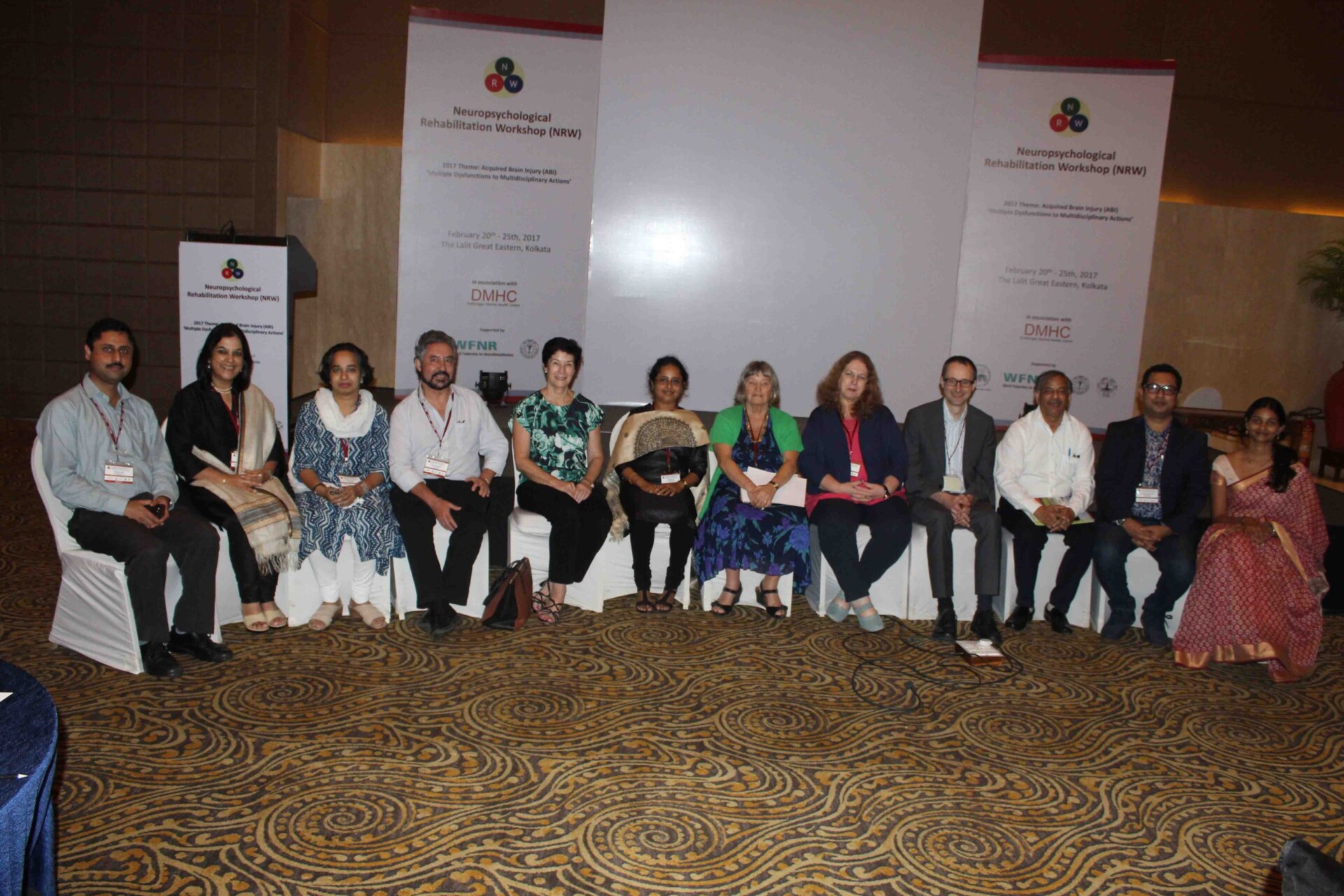Global Engagement Committee (GEC)
Welcome to the Global Engagement Committee
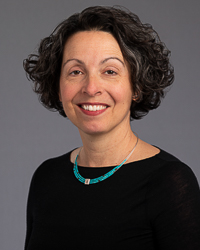
Welcome from the Chair of the INS Global Engagement Committee (GEC), Melissa Lamar, PhD.
I would like to welcome you to the web pages of the INS Global Engagement Committee. I am honored to have been named the Board appointed Chair of this important committee having served as the Deputy Chair of the GEC from 2021 to 2024. Together with the new Deputy Chair, Leigh Schrieff-Brown, PhD of the University of Cape Town, I am pleased to introduce you to the worldwide regional representatives of the GEC (see GEC Members area below), and the work of our many members.
The Mission of the GEC
The mission of the INS Global Engagement Committee (GEC) is to support the development of neuropsychology throughout the world. Our particular focus is on regions of the world where neuropsychology is less well developed, including low-income and middle-income countries.
Our programs include: the Charles Matthews International Neuropsychological Development Fund which sponsors speakers, meetings, and webinars in countries where neuropsychology is less well developed; a Research and Editing Consultant Program wherein INS members volunteer to work with colleagues aiming to develop research and publish in English language journals; an International Resources section which will provide information and links to freely available resources that may be useful to colleagues around the world; and a Book and Journal Depository which supports the provision of donated books and journals. Until 2016 we produced a biannual newsletter (INSNET). Now, we contribute to the INS Newsletter.
We give special thanks to Natalia Ojeda del Pozo and Jon Evans (former Chair) and Alberto Fernandez (Deputy Chair) for their wonderful effort in developing the ILC/GEC over the years. We would not have this committee without their dedication.
Committee Members
GEC Chairs
- Melissa Lamar – Chair
- Leigh Schrieff-Brown – Deputy Chair
GEC Subcommittee Chairs/Program Coordinators
- Mary Beth Spitznagel – Coordinator, Research & Editing Consultant Program
- Skye McDonald – Coordinator, International Resources
- William Seidel – Coordinator, Book & Journal Depository
- Omar Alhassoon – Liason, INS Newsletter
- Anthony Stringer – Coordinator, Chair Justice and Equity (2021 to 2024)
Regional Representatives
Africa
- Jean Ikanga – Democratic Republic of the Congo
- Lingani Mbakile-Mahlanza – Botswana
- Leigh Schrieff-Brown – South Africa
Asia
- Raymond Chan – China
- Aparna Dutt – India
- Rhalf Jayson F Guanco – Philippines
- Hooi-See Gan – Taiwan
- Nai-Wen Guo – Taiwan
- Parisuth Sumransub – Thailand
Australasia
- Skye McDonald – Australia
- Amber Ayton – Australia (SLC GEC Representative)
Central America
- Ramiro Coello Cortés – Honduras
Eastern Europe
- Emilia Lojek – Poland
Middle East
- Alia Ammar – UAE
- Miriam Levav – Israel
Nordic Countries
- Taina Nybo – Finland
North America
- Omar Alhassoon – United States
- Mary Beth Spitznagel – United States
South America
- Majo Bracho – Chile (SLC GEC Representative)
- Lucia Braga – Brazil
- Alberto Fernández – Argentina
- Leandro Malloy-Diniz – Brazil
Southern Europe
- Sara Cavaco – Portugal
- Elizabeth Kera – Croatia
- Athanasia Liozidou – Greece
- Natalia Ojeda del Pozo – Spain
Western Europe
- Jon Evans – UK
- Seta Kazandjian – France
- Unai Diaz Orueta – Ireland
Charles G. Matthews International Neuropsychological Development Fund
Chuck Matthews, the 1992 President of INS, was a strong advocate for making INS instrumental in developing neuropsychology throughout the world, especially in low-resource countries. As a result of this passion, the INS instituted the Charles G. Matthews International Neuropsychological Development Fund in his name in 2003. The purpose of this fund is to support Educational and Training activities such as workshops, meetings and webinars in countries where neuropsychology is less well developed/resourced. Funds can be used to sponsor travel expenses for speakers, other meeting expenses or costs associated with running webinars, videoconferences etc.
In 2022, The Charles Matthews International Neuropsychological Development Fund received a donation to expand the actions being covered. The GEC identified the need to support the development of Research and Clinical programs in countries where neuropsychology is less well developed. Therefore, INS now has two additional funds as an extension of the traditional Educational and Training format:
- Clinical for actions related to design of a clinical protocol to evaluate/diagnose, the design of an intervention tool to help patients with neuropsychological deficits, the translation/adaptation of materials not available into the local language, etc.
- Research for actions related to research design, statistical software acquisition, statistical analysis cost, acquisition of tests materials according to the study protocol, abstract submissions to scientific meetings, dissemination of results in scientific journals, etc.
The deadline for applications is May 31st 2024. Decisions regarding funding will be communicated to applicants by July 15th 2024.
GENERAL
Q. The program will take place in the country where neuropsychology is not as well developed as in the US, but the country is in the UPPER-MIDDLE income according to World Bank/UN classification. Would we still be eligible?
A. We don’t exclude applications from any income level but just prioritize low/middle income so being upper-middle is not an exclusion.
Q. The funds of this grant will cover ONLY PART of the expenses associated with this project. The rest of the expenses will hopefully be covered by other grants. Is that okay?
A. This is fine; however, the application will need to state how the team plans to cover the rest of the funds. In addition to naming the source of additional funding in the application, the team will – if successful in their Matthews Fund application – need to provide confirmation that all required funds were in place before the Matthews funding would be released.
Q. Is there a template for writing a Matthews Fund proposal?
A. There is no template. Please refer to the webpage for the particular funding stream of interest, i.e., Education and Training, Research or Clinical, for details of the sections to be included.
Q. We are one paragraph over the 4-page limit, due to the reference list. Will that be acceptable, or should we cut down?
A. Please keep to the application guidelines.
Q. Can someone on the Global Engagement Committee review our proposal after it is written but before we submit it?
A. No, unfortunately that would introduce a conflict of interest at the time of formal review. INS does have a Research and Editing Consultation Program (see https://the-ins.org/global-engagement/#consultant-program); however, it is up to that team to determine if this would fall under the remit of that program.
Q. How much does it cost to become an INS member?
A. Details of how to join INS may be found at https://the-ins.org/join-ins/benefits-of-membership/ There are various levels of membership based on career stage and geographic location.
Q. If me or my team/group already received a Charles Matthews Fund, can we apply for another fund in the future?
A. Yes and no. If you already received an Education and Training grant, you cannot re-apply for the same mechanism. If you would like to apply to a different mechanism and the actions for the proposal are well justified or are a continuation of a proposal previously funded (e.g., based on findings from a Charles Matthews Fund Research proposal you would like to apply for Clinical funds to implement results in a clinical practice setting) you are welcome to apply again.
Q. Can a team or the same INS member simultaneously submit more than one proposal?
A. Yes, if the proposals are for different mechanisms (e.g., one proposal for the Educational and Training program and the other one for the Research program).
EDUCATION AND TRAINING
Q. I am an INS member and the PI for the application, but do all workshop participants have to be INS members?
A. While all workshop participants do not have to be INS members, the Committee always like to see some INS representation beyond that of the PI of the application; however, it is not required.
Q. I am applying for the Education and Training grant; can you suggest INS members that might be interested in participating as invited speakers and/or lead pre/post conference workshops?
A. The INS website has many places to look for INS members with particular expertise. These include the list of representatives of the Global Engagement Committee https://the-ins.org/global-engagement/#gec-members, INS Governance pages https://the-ins.org/about-ins/governance/, and the Special Interest Groups list https://the-ins.org/sigs/ are all excellent places to start.
RESEARCH
Q. I am an INS member and the PI for the application, but do all study collaborators have to be INS members?
A. While all study collaborators do not have to be INS members, the Committee always like to see some INS representation on the team beyond that of the PI of the application; however, it is not required.
Q. The research group is a combination of neuropsychologists from US and non-US countries; is that okay?
A. This is fine as long as the clear focus of the program is within a country where neuropsychology is less well developed.
Q. Although my application is for the Research and not the Education and Training grant, it still has implications for postgraduate teaching and development of specific research methods. Is that okay?
A. Yes. As long as the primary focus is research, and the funds are primarily used to advance a scientific question including methods development.
Q. We have already conducted our experiments and written our manuscripts; however, we require assistance with publication fees. Is this something that the Research Fund could assist with?
A. Unfortunately, this is not under the remit of the mechanisms as written.
2023 Matthews Funding
The Educational Training Awardee
- Name of Awardee: Rachel Maina
- Awardee’s Institution/Organization: Brain and Mind Institute, Aga Khan University
- Country of Awardee: Kenya
- Title of Project: Neuropsychology and Brain Health in Nairobi Kenya
Abstract: The Neuropsychology Workshop seeks to advance the field of neuropsychology and promote brain health in low and middle income countries. By facilitating knowledge exchange, addressing challenges, and empowering professionals, the workshop aims to foster the development and utilisation of contextually appropriate tools and approaches for assessing and diagnosing neurocognitive impairments. Through critical evaluation of existing tools, collaborative networking, and mentorship opportunities, participants will gain a comprehensive understanding of key areas within the field, leading to advancements in effective and culturally responsive practices. The workshop serves as a platform for sharing best practices, exploring cutting-edge research, and establishing professional connections, ultimately empowering professionals and driving improvements in brain health outcomes. We intend to invite expert speakers in the field of neuropsychology that can address the importance of African-specific (i.e., indigenous and contextualised) and global (ie., internationally harmonised) perspectives. In order to be relevant in the African context, neuropsychological data will need to reflect functional capacities that are valued and adaptive in African settings. However, in order to study the international impacts of climate change, pandemics, and socioeconomic disparities, measurement tools will need to be harmonised across international sites. This challenge and various ways it might be addressed, will be a primary focus of the workshop.
The Educational Training Awardee
- Name of awardee: Maria Melinda Tan, MA, RPsy
- Awardee’s institution/organization: University of the Philippines
- Country of awardee: Philippines
- Title of project: Post Graduate Continuing Education in Clinical Neuropsychology
Abstract: The practice of clinical neuropsychology in the Philippines is currently lagging behind other developed countries despite the rapidly expanding need for these services across the nation. Early foundations were laid in the mid -1970s through the training of a few Filipino neurologists in the use of neuropsychological test batteries; however, over the decades, the growth of clinical neuropsychology in the Philippines was limited by the lack of systematic educational programs, standardized training, or formal credentialing procedures. Hence, despite early foundations being laid many decades ago, there are no universities or hospitals as yet offering formal training in clinical neuropsychology. In response to this need, five Filipino psychologists from different universities formed the Philippine Society for Clinical Neuropsychology whose mission is to advance clinical neuropsychology in the Philippines as a science and a profession in order to help Filipinos achieve optimal neuropsychological health and quality of life. These psychologists have been exposed to or trained in the clinical applications of neuropsychology theory using the observership/apprenticeship model under the supervision of a clinical neuropsychologist, and have worked in multidisciplinary settings with medical and allied health professionals. However, the limitation of the observership/apprenticeship model is that it mainly emphasizes the practice component. There is still a need to address the gaps in the didactics/knowledge component that is part of the competency requirements for advanced training in clinical neuropsychology. Thus, the main objectives of the Post Graduate Continuing Education in Clinical Neuropsychology are threefold:
- To narrow the gap in knowledge as preparation for advanced training in clinical neuropsychology.
- To provide the participants with additional knowledge and skills in clinical neuropsychology to improve patient care.
- For participants to acquire educational knowledge in clinical neuropsychology that equips them to teach basic neuropsychology courses in their respective academic institutions and through the Philippine Society for Clinical Neuropsychology, as a crucial first step towards growing the science and profession of clinical neuropsychology in the Philippines.
The Research Funding Awardee
- Name of awardee: Beatriz Elena Munoz Ospina
- Awardee’s institution/organization: Universidad Icesi, Cali Colombia
- Country of awardee: Colombia
- Title of project: Afrodescendant living with Parkinson’s disease: a sociodemographiccharacterization and factors related to quality of life in the Colombian pacific region
Abstract: Parkinson’s disease (PD) is the second most common neurodegenerative disease worldwide with a global prevalence of 315 per 100.000 people. Clinically it is characterized by a broad spectrum of motor and non-motor symptoms that can cause disability and impact quality of life (QOL). PD is a multifactorial disease; evidence suggests that it does not affect all ethnic groups equally. Ethnicity has been described as a predictor of mortality in PD, Afro descendant population has a higher risk of mortality than the white population, this is related to inequities in health access. Also, Afro descendants with PD have been described more frequently associated to cognitive deficit and progression to dementia. For Colombia, DANE reports Afro descendants represents 9.34% of the population, concentrating mainly in the southwestern region. However, there is a lack of ethnic and minorities inclusion in PD trials and not conclusive information regarding this populations. This study aimed to describe sociodemographic characteristics and factors related to QOL of Colombian Afro descendant patients with PD, that attends a high-complexity center in southwestern Colombia. In a preliminary report of the LARGE-PD study, which is carried out by our institution in conjunction with the Cleveland Clinic with a population of 167 patients with PD, 21.5% were Afro descendant, of which, males represented 69.4%, the median age was 68.5 years, the median age at diagnosis was 63, the median time from diagnosis was 4 years, 58.5% presented an early stage of the disease based on Hoehn and Yahr. The median MoCA test score was 21, the median MDS-UPDRS III score was 34, with 47.2% of patients in a tremor-dominant profile. The Afro descendant population continues to be underrepresented in studies conducted on PD, which is a significant limitation. This research will describe ethnic differences in PD patients, with the ultimate goal to have a better approach to the disease and its impact on the QOL.
The Clinical Funding Awardee
- Name of awardee: Temgoua Michael
- Awardee’s institution/organization: Institute of Applied Neurosciences and Functional Rehabilitation
- Country of awardee: Cameroon
- Title of project: ADDIC PROGRAM (ALZHEIMER DISEASE and DEMENTIA ISSUES in CAMEROON)
Abstract: Lack of data and adequate neuropsychological testing are at the root of the ADDIC program to improve early detection and management of cognitive impairment and dementia in Cameroon. The program will be implemented in all ten regions of Cameroon, with a particular focus on health districts (operational level of health programs in the Cameroonian health system). Thus, each phase of the program will aim to establish an ADDIC team in each region and to initiate outreach, training, screening and patient management activities. The findings made in synergy with the size and costs required by the ADDIC program lead NEUROREHAB to start initially with:
– Public awareness of warning signs and risk factors
– Training health professionals in early detection using simple and adapted tools
These activities will take place within the Nkolndongo Health District. Through the health areas (11) we plan to reach a large number of possible participants. We will be accompanied by a community health worker to engage the public on the awareness campaign. We signed a collaboration document with the head of the Nkoldongo health district for the program. We have also signed a collaboration document with INAREF (Institute of Applied Neurosciences and Functional Rehabilitation) Neurology and Functional Rehabilitation Clinic located in Yaoundé, Cameroon, Nkolndongo Health District, with a Memory Rehabilitation Unit – Cognition and Neuropsychology and a Memory Consultation.
Upcoming Workshops
Recent Matthews Fund Workshops
Next Step of Neuropsychology: Integration of the Traditional – Based Approach to the Technology-Based Approach (Thai Neuropsychology Society) – August 16th-18th, 2023
The 2nd International Neuropsychology Society Conference was organised by Dr Parisuth Sumransub, President of the newly formed Thai Neuropsychology Society, and delegates were welcomed to the event by Supavadee Nuanmanee, President of The Thai Clinical Psychologists Association, and Pongakesem Khaimook, M.D., Deputy Permanent Secretary of the Thai Ministry of Public Health.
The conference focused on traditional approaches to neuropsychological assessment and rehabilitation as well as approaches that draw upon use of new technologies for both assessment and rehabilitation, and how to integrate new technologies with traditional approaches to neuropsychological assessment and rehabilitation.
170 participants attended, including clinical psychologists, physicians/psychiatrists, physiotherapists, communication disorder therapists, occupational therapists, music therapists, teachers/instructors, undergraduate and doctoral students.
Speakers and topics at the conference included:
Day 1
Dr Jon Evans (UK), Cognitive theory and traditional assessment and rehabilitation of memory, attention, executive and visuospatial functions
Day 2
Dr Albert Rizzo (USA) Technology based approaches to cognitive assessment
Dr Pongsatron Paholpak (Thailand) Simultaneous Electroencephalography and Neuroimaging for Functional Neurological Assessment
Dr. Ajay Halai (UK) Cognitive theory and traditional assessment and rehabilitation of language
Day 3
Dr Parisuth Sumransub (Thailand) Technology-Based Cognitive Training and Rehabilitation
Dr Rene Stolwyk (Australia) Teleneuropsychology
Dr. Graham Pluck (Thailand) Integration of traditional – Based Approach to Technology -based Approach for Clinical Practices and Future Directions
Feedback from conference delegates indicated that delegates were very satisfied with the quality of presentations and the organisation of the conference. Delegates indicated that the topics were very relevant to their practice and felt that their knowledge of these important areas improved as a result of attending the conference. Delegates noted that they are keen to learn more about these topics through further seminars and workshops in the future.
Dr Sumransub was supported by many colleagues to run the event including Ms.Jittarat Srivilert, Ms.Thayakorn Kittichai, Mr.Isara Durongkadej, Ms.Pathitta Dujada, Mr.Chollathis Kengkarnrob, Mr.Yuthachai Sarutikriangkri, Mr.Suchart Tangnimitchok, Ms.Thidaporn Manmen and Ms.Poonniphat Pantoe
Strengthening Capacity for Neuropsychological Assessment in the Carribbean (WINDREF) — March 3rd-4th, 2022
In March of 2022, the Matthews Fund supported a 2-day virtual/in-person hybrid workshop in Grenada, West Indies. The aim of the workshop was to bring together stakeholders in the English-speaking Caribbean who share an interest in strengthening regional capacity for neuropsychological assessment. Attendees spanned the Caribbean from Trinidad to St. Vincent and Jamaica, as well as Europe, Canada, and North America. There were psychologists, social workers, physicians, educators, and non-profit field experts in attendance. The workshop was organized by Roberta Evans, MS, with assistance from Kemi Burgen, MA, both of whom are early career psychologists in the region. It was co-sponsored by the Windward Islands Research and Education Foundation (WINDREF) and St George’s University.
The event opened with a welcome message and acknowledgement of the unique history and ancestries of the region. Day 1 focused on the development of culturally appropriate assessments and interventions, as well as the appreciation of locally relevant risk factors for adverse neuropsychological outcomes. We compared different methodologies for the development of local reference groups and international normative standards. We learned about pertinent local exposures, such as arboviruses and corporal punishment practices, that need to be considered during assessments. We heard from a UNICEF early childhood development specialist about the importance of advancing equity for Caribbean children through quality assessments. We were introduced to efforts that are underway to develop and validate a Caribbean learning and memory scale. Day 1 included helpful step-by-step tutorials on how to measure early childhood development in low- and middle-income countries (LMICs), as well as how to apply a regression-based approach to normative sample development.
Day 2 focused on community-based training models and how to grow regional capacity without compromising local culture and values. We learned about the challenges and perils of translating values implicit to Western, Education, Industrialized, Rich, and Democratic (WEIRD) cultures to local training and practice models. We learned about the importance of establishing and communicating the purpose and results of assessment in collaboration with community stakeholders, with room for transformation, so that neuropsychology can grow indigenously within the region.
Overall, this workshop brought together a unique combination of experts from various backgrounds, disciplines, and regions to make for a lively and engaging exchange. Attendees provided feedback that it was a “seminal” experience for their work in the region. All workshop events, panels, and lectures were recorded and are now available for INS membership so that others who were not able to attend can still benefit from the unique and valuable discussions that occurred.
Adventist University of the Philippines (AUP) 10th-11th — November 2021
The Charles Matthews Fund call funded in 2021 two international educational actions, one to take place in the Philippines and one in the Caribbean region. The first of this actions, took place in November 10-11, 2021 as a two-day historical webinar called “Basics of Neuropsychology: A Scientist-Practitioner Model Approach”. The webinar was made possible by a partnership with the International Neuropsychological Society and planned by Dr Rhalf Jayson F. Guanco, assistant professor at Adventist University of the Philippines (AUP) and recipient of the Charles G. Matthews International Neuropsychological Development Fund. The fund’s mission is to assist educational and training initiatives such as workshops, symposia, and webinars in countries with less developed/resourced neuropsychology, such as the Philippines. In this occasion, the fund was established to assist the Adventist University of the Philippines in reaching a broader audience in the Philippines and internationally. It has enabled Dr Rhalf Jayson Guanco and his colleagues, Dr Mylene Gumarao (Chairperson of the AUP Graduate Psychology), Dr Myrtle Orbon (Chairperson of the AUP Undergraduate Psychology), and a competent pool of faculty, Dr Sheryll Ann Castillo, Ms. Cutie Canesares, and Ms. Buensafe Sadicon, under the leadership of the dean of the AUP College of Arts and Humanities Dr Eunice Aclan, to envision a more hopeful future for neuropsychology in the Philippines.
Dr Natalia Ojeda del Pozo, chair of the INS Global Engagement Committee, opened the program with a welcome message, as did Dr Miriam Narbarte, Vice President for Academics at the Adventist University of the Philippines (AUP), on Day 1, and Dr Eunice Aclan, college dean at the AUP College of Arts and Humanities on Day 2. This two-day webinar featured sessions led by two national experts: Dr Rhalf Jayson Guanco, a licensed psychologist and psychometrician who serves as the INS Global Engagement Representative for the Philippines, who discussed “Current Challenges in Neuropsychology Practice,” and Ms. Maria Corazon Fernandez, a clinical psychologist at the Asian Hospital and Medical Center, who discussed “Neuropsychological Assessment: Clinical and Theoretical Foundations.” Additionally, two international experts participated: Dr Tracy Vannorsdal, a clinical neuropsychologist and associate professor in the Johns Hopkins University School of Medicine’s Departments of Psychiatry and Behavioral Sciences and Neurology, presented on the topic “Basics of Neuropsychology: Implications for Clinical Practice and Research,” and Dr Rowena Ng, a pediatric neuropsychologist at the Kennedy Krieger Institute and an Assistant Professor of Psychiatry, presented on the topic “Principles of Neuropsychological Assessment in Children and Adolescents”.
A total of 638 attendees (psychologists, psychometricians, graduate psychology students, college students, teachers, and post-doctoral trainees in neuropsychology) attended the event. Additionally, participants represent 263 institutions and organizations throughout the Philippines and 10 overseas. The evaluation of the program revealed an overall mean rating of 4.9 out of 5, interpreted as extremely satisfied with the event’s overall impact. A notable outcome of the two-day webinar was the agreement of a number of psychologists and psychometricians in the Philippines to immediately establish a neuropsychology special interest group within the Philippine Psychological Association following the conclusion of the program.
International Workshop in Neuropsychological Assessment and Rehabilitation
Amari Don Muang Airport Hotel, Bangkok, Thailand, 7th-11th — December 2020
This five-day Matthews Fund Workshop organised by Dr Parisuth Sumransub, in conjunction with the Thai Clinical Psychology Society, was initially planned for April 2020 but as a result of the Covid -19 pandemic was postponed to December 2020. The format changed from a fully in-person event to a hybrid with local delegates attending in person, but the international faculty recorded lectures and attended remotely each day for an hour of discussion after delegates had viewed the recorded lectures. 75 people attended the workshop, including clinical psychologists, general psychologists, neurologists, psychiatrists, lecturers, physiologists, university students and traditional Chinese physicians. The international faculty were Professor Barbara Wilson and Professor Jonathan Evans. The local faculty were Dr Sekh Thanprasertsuk, Dr Chaipat Chunharas, and Dr Parisuth Sumransub.
Mar del Plata, Argentina, 7th-11th — March 2019
This workshop on Neuropsychological Assessment was organised by Dr Leticia Vivas (National University of Mar del Plata). The international speaker was Dr Bernice A. Marcopulos (USA). Other speakers from Argentina included Dr Leticia Vivas, Dr Macarena MartC-nez CuitiC1o,Laura Manoiloff, and Dr Ana ComesaC1a. Activities included a workshop for 50 participants and a lecture on forensic neuropsychology attended by 130 participants. These took place at the National University of Mar del Plata. There was also a lecture on the Neuropsychology of neuropsychiatric disorders attended by 196 participants at the auditorium of the Catholic University of CC3rdoba (UCC).
A workshop entitled, Implementation of Studies in (Clinical) Neuropsychology in Lithuania, organised by Prof Albinas Bogdanas from the Laboratory of Applied Psychology at the Institute of Psychology, Vilnius University took place on October 11-12, 2019. Around 50 people attended, including university teachers, students, psychologists working in different health institutions, neurologists and neurobiologists. Four international speakers (Erik Hessen, Katherine Carpenter, Linas Bieliauskas and Emilia Lojek) gave presentations on the structure of clinical neuropsychology training in Nordic countries, the UK, the USA and Poland. Nine Lithuanian speakers (Albinas Bogdanis; Ramune Dirvanskiene; Ausra Daugirdien?; Aiste Pranckeviciene; Osvaldas Ruksenas; AuE!ra Saudargiene; Rytis Stanik?nas; Vaiva Sutnikiene and Liuda Sinkariova) described the current situation on the development of neurosciences in Lithuania. Current challenges in relation to clinical work, education and training in neuropsychology in Lithuania were discussed. A key outcome from the workshop was that immediately after the end of Workshop a group of 13 psychologists and neurologists created the Group of Neuropsychology as a Division of the Lithuanian Psychological Association. In addition there are plans to establish further training in neuropsychology at Vilnius University.
Kolkata, India, 19th-25th — February 2017
This workshop on Neuropsychological Rehabilitation was organised by Dr Aparna Dutt, Dr Anirban Dutt and their colleagues from the Duttanagar Mental Health Centre. The workshop ran over a period of six days, with an additional pre-workshop study day on Single Case Experimental Design methodology. The international speakers at the workshop included Prof Barbara Wilson (UK), Prof Jonathan Evans (UK), Prof Robyn Tate (Australia), Dr Michael Perdices (Australia), Dr Mel Kaushansky (USA), Dr Anita Rose (UK), and Ms Donna Malley (UK).
Santiago, Chile, 5th-6th — December 2017
This workshop on Cross-Cultural Neuropsychological Test Development was organised by Dr Christian Salas (Universidad Diego Portales) and was held at Universidad Autonoma de Chile. It was attended by 120 participants. The international speakers were Prof Jonathan Evans (UK) and Dr Alberto Fernandez (Argentina). Dr Salas also organised the 1st Chilean Congress of Neuropsychological Rehabilitation, held on December 6th at Universidad Diego Portales to which Prof Evans and Dr Fernandez also contributed.
Research and Editing Consultant Program
The Research and Editing Consulting Program (RECP) is designed to provide research design and statistical advice to colleagues who are planning research projects or want to develop international collaborations. In addition, the Program offers English language editing to colleagues for whom English is not their first language who wish to publish their research in English language journals. Members of the neuropsychology professional community are eligible to become consultants. To request RECP services, at least one author must be a member of a neuropsychological society and/or the manuscript must be under consideration for a journal in the field of neuropsychology. Our current consultants include:
If you would like to be put in touch with a consultant who can assist with research design, statistical advice or English language editing, or if you are willing to act as a consultant, please contact Dr. Mary Beth Spitznagel at mspitzna@kent.edu.
International Resources for Assessment and Remediation
Book and Journal Depository
INS International Resources provides a book and journal depository, which supports the provision of donated neuropsychology and neuroscience books and journals. We accept copies of recent books and journals that are less than five years old. If you would like to donate books or journals please contact Dr. William Seidel, Coordinator at wtswts5@yahoo.com. Institutions from low- and middle-income countries who would like to request a shipment of books and journals should also contact Dr. Seidel.
Justice and Equity
The Justice and Equity Subcommittee has addressed its charge by focusing on education initiatives that will directly impact health equity.
Thus, since its inception in 2021, the subcommittee has focused on obtaining NIH funding to address the lack of neuropsychology training programs in Africa. The first grant application (under review) has the goal of starting the first doctoral level neuropsychology program at the University of Rwanda. It will focus on training primarily neuropsychology researchers although limited clinical training will also be supported. The second grant under review focuses on building a neuropsychology battery and collecting normative data in Rwanda.
Additionally, a team of volunteer faculty and staff, mostly from Emory University, have begun a 1-year professional education certification program in neuropsychological assessment in Rwanda for Masters-degree psychologists (the entry level degree for practice in Rwanda). The focus of this training is on epilepsy, stroke, and traumatic brain injury. Students are already licensed and employed as psychologists in several hospitals and clinics in Rwanda with patient populations that could benefit from neuropsychological services. If the program is successful, it will be used as a template from which to expand to other African countries.
A previously completed a survey of neuropsychology resources across the African continent (presented by Dr. Deb Attix at the INS Conference in Feb. 2023) is being written into a manuscript for peer-reviewed publication.
Related Links
Below are some links to websites that may be relevant to members of the INS around the world. INS does not endorse any of the organizations listed below, we simply provide links that may be of interest and relevance to members. If you have ideas for other relevant links please email Melissa Lamar (melissa_lamar@rush.edu).
Acta Neuropsychologica is a peer-reviewed scientific quarterly, featuring original articles concerned with all aspects of the brain-behavior relationship. Published in English with an international scope, it is also the official publication of the Polish Neuropsychological Society.
The Asian Neuropsychological Association is a new professional neuropsychological organization whose mission is to facilitate the accessibility of competent culturally informed neuropsychological services to all Asians and develop a professional community for neuropsychologists of Asian descent.
La Asociación Latinoamericana de Neuropsicología (ALAN) se creó formalmente en 1999 en Cartagena (Colombia) durante la realización del “Congreso Internacional Cerebro-Mente: La Integración”. Su objetivo fundamental es el desarrollo y fortalecimiento de la neuropsicología en Latinoamérica. La ALAN se fundó como una federación de sociedades de neuropsicología, lo cual quiere decir que todas las sociedades de neuropsicología existentes en Latinoamérica pueden en principio considerarse como parte de la ALAN. Más que una sociedad, es una asociación de sociedades.
La Asociación Mexicana de Neuropsicología es una asociación civil sin fines de lucro que congrega a los profesionales de la neuropsicología en el país y a los estudiantes de ese campo. Cada dos años realizan un congreso nacional y a lo largo del año organizan cursos, talleres y seminarios orientados a la formación y profesionalización de los recursos humanos en esta área.
ASSBI is a multidisciplinary society dedicated to improving the quality of life of people with brain impairment and their families. Its mission is to:
- Enable all disciplines who work with people with brain impairment to meet, learn and discuss the latest clinical research initiatives in a scholarly environment
- Provide high quality continuing education; Publish scholarly research via its journal Brain Impairment
- Promote scientific rigour and evidence-based practice in the field of brain impairment
- Encourage students to present, share and publish their work
- Provide high quality assessment and treatment resources via ASSBI Resources.
ASSBI runs an annual conference each year. These are usually in Australia but it has also held meetings in New Zealand and China (Macau).
El SBNP es una sociedad científica fundada en 1989 con el objetivo de apoyar y divulgar cualquier iniciativa relacionada con el estudio de las funciones cognitivas humanas y sus trastornos en los pacientes con lesiones cerebrales. Su cuerpo se compone de médicos asociados, psicólogos, logopedas, terapeutas ocupacionales, educadores, psicólogos, lingüistas, biólogos, profesores universitarios y estudiantes de la zona.
The BPS is the representative body for psychology and psychologists in the UK. It is responsible for the development, promotion and application of psychology for the public good. The Division of Neuropsychology (DoN) supports its members with training and advice, holds regular conferences and events, and contacts members with updates and news about the professional field throughout the year.
The Canadian Psychological Association is a voluntary organization which represents the interests of all aspects of psychology in Canada and which promotes unity, coherence and a sense of identity across the diverse scientific and professional interests.
CIRRIE facilitates the sharing of information and expertise in rehabilitation research between the U.S. and other countries. It offers an international rehabilitation research database and a list of electronic bulletin board and discussion groups on rehabilitation research.
The Czech Association for Neuropsychology (CANP) is a professional neuropsychological society, which is based on democratic principles and cooperation shared among academic and clinical professionals and students interested in the field of neuropsychology. The mission of the CANP is to promote comprehensive education in neuropsychology (graduate, postgraduate and lifelong), to set standards of professional ethics and support research in neuropsychology in an effort to establish neuropsychology as an independent professional discipline in the Czech Republic.
The EthnoMed site contains information about cultural beliefs, medical issues and other related issues pertinent to the health care of recent immigrants to Seattle or the US, many of whom are refugees fleeing war-torn parts of the world.
EBBS promotes the exchange of information between European scientists interested in the relationship of brain mechanisms and behaviour. Membership is open to all European scientists and Associate Membership is available for non-Europeans.
ECNP, established in 1986 on the initiative of European Scientists working in the field of neuropsychopharmacology, aims to encourage research and facilitate communication of ideas in the convergent disciplines.
Launched in 1997, the European Dana Alliance for the Brain works to make information about brain research accessible to the general public in Europe. It is part of the Dana Alliance for Brain Initiatives, a nonprofit organization and the Dana Foundation, a private philanthropic organization.
EFPA is the leading Federation of National Psychology Associations, providing a forum for European cooperation in a wide range of fields of academic training, psychology practice and research. The 31 member organizations, representing about 150,000 psychologists, are concerned with promoting and improving psychology as a profession and as a discipline, particularly, though not exclusively, in applied settings and with emphasis on the training and research associated with such practice. The psychologists in the member associations include practitioners as well as academic and research psychologists. The Federation has as one of its goals the integration of practice with research and the promotion of an integrated discipline of psychology.
FENS was founded with the goal of advancing research and education in neuroscience and representing neuroscience research in the European Commission, IBRO, and other granting bodies.
ESN was founded in August 2008 and adopted its constitution in January 2009 at its first official congress in Edinburgh. The goals of the organization are to further scientific and professional issues within the field of neuropsychology, including cognitive neuropsychology, clinical neuropsychology, behavioural neurology, neuroimaging and neuropsychological rehabilitation. Additional goals are to encourage and help develop European programmes of clinical and experimental neuropsychological research along with pre- and postgraduate teaching and to put forward any instances related to neuropsychology to the relevant political or beaurocratic bodies. The Federation may also engage in other activities which contribute to the advancement of neuropsychology and related topics within Europe and will liaise with other relevant scientific and clinical bodies. Contact Erik Hessen at erik.hessen@nevropsykologi.no.
HINARI provides free or very low cost online access to the major journals in biomedical and related social sciences to local, not-for-profit institutions in developing countries.
HNS is a group of clinical and research neuropsychologists seeking to promote training and research which will yield high standards in neuropsychological practice with the ethnically diverse Hispanic population.
This Academy offers advanced training programs and seminars for all interdisciplinary professionals working in the neurological rehabilitation sector. The team is composed of Simone Eisenbacher, Kirsten Wander, Julia Riegler, Gerhard Müller, and Herbert König. They have been offering international courses in English within the associated “International Academy of Applied Neuropsychology” since 2008 and have hosted symposia and conferences in Austria, Germany, Switzerland, Lichtenstein, Spain and Brazil. For a list of upcoming training institutes, go to https://www.neuroraum.de/. Email: akademie@koenigundmueller.de
The International Association for Cross-Cultural Psychology [IACCP], founded in 1972, has a membership of over 800 persons in more than 65 countries. The aims of the Association are to facilitate communication among persons interested in cross-cultural psychology and to examine more effectively the universal validity of psychological theories in all branches of psychology and related disciplines.The official publication of IACCP is the Journal of Cross-Cultural Psychology.
IBANGS, founded in 1996, works to promote the field of neurobehavioural genetics. With 500 members in Europe, North and South America, and Australasia, IBANGS welcomes established scientists, students and any other persons interested in the field of behavioural neurogenetics.
IBIA is dedicated to the development and support of multidisciplinary medical and clinical professionals, advocates, policy makers, consumers and others who work to improve outcomes and opportunities for persons with brain injury.
IBRO is an independent, international organization dedicated to the promotion of neuroscience and of communication between brain researchers in all countries of the world.
The International Test Commission (ITC) is an association of national psychological associations, test commissions, publishers and other organizations committed to promoting effective testing and assessment policies and to the proper development, evaluation and uses of educational and psychological instruments. The ITC produces a wide range of guidelines relating to psychological assessment, including Guidelines on Adapting Tests.
This is an interactive training program for patients with schizophrenia. It consists of 8 downloadable modules currently available in English, German, Dutch, French and Spanish. Versions in Polish, Farsi, Hindi, Chinese, Portuguese and Korean are being prepared. All programs are available cost-free on the above web site.
The mission of the National Association of Psychometrists (NAP) is to promote the education and training of individuals who are employed to administer neuropsychological, psychological and educational tests under the supervision of Neuropsychologists, Psychologists and other authorized users. The Association advocates the careful application of standardized procedures for administration and scoring as set forth by the test developer. The goals desired from this mission are to be achieved in cooperation with professional psychological organizations and as a service to the general public. NAP now has members in nearly every US state as well as Canada, Norway and Australia.
Founded in 1995 and edited by Jeff Browndyke, Ph.D., this website offers resources, links, and an e-mail discussion list dedicated to neuropsychology.
The New York Neuropsychology Group is a multidisciplinary, nonprofit scientific and educational organization founded in 1979 to provide a forum for the discussion of brain-behavior relationships.
The APA Office of International Affairs publishes a quarterly newsletter, coordinates APA participation and representation in international meetings, and administers journal donation programs, travel grants, and other projects to facilitate exchange between U.S. and international psychologists.
The OFPN’s objective is to ensure the organization of psychologists specializing in neuropsychology. It aims to bring the word of these psychologists and their groups together at the national and even international level. The OFFP also sets itself the objectives of stimulating, encouraging and initiating any action to defend and promote neuropsychological practice by psychologists.
PsycBITE™ is a free-access database that catalogues studies of cognitive, behavioural and other treatments for psychological problems and issues occurring as a consequence of acquired brain impairment (ABI).
La Revista Argentina de Neuropsicología es el órgano oficial de la Sociedad de Neuropsicología de Argentina. La Revista Argentina de Neuropsicología is the official journal of the Neuropsychological Society of Argentina.
Free, weekly e-mail journal of Spanish-language articles with an emphasis upon practical applications of neuropsychological principles to medicine. Sponsored by the Federacion Centroamericana de Medicina Neuropsicologica, based in Tegucigalpa, Honduras. To subscribe, send e-mail to Ramiro Coello-Cortes, MD, at drcoello@amnettgu.com.
La Revista Latinoamericana de Psicología fue publicada por primera vez en 1969 en Bogotá (Colombia). Publica artículos en todas las áreas de la psicología como ciencia y como profesión. The Latin Americana Review of Psychology, published for the first time in 1969 in Bogotá, Colombia, publishes articles in all areas of psychology as a science and as a profession.
SACNA is a peer-credentialed association of psychologists in South Africa, who aim to promote and stimulate interest in the field of neuropsychology, while maintaining standards in neuropsychological practice. This is achieved by ensuring that its full members have demonstrated knowledge and competence in the field, by way of examination and peer review.
SAR is an international network of universities and colleges working to promote academic freedom and to defend the human rights of scholars worldwide. SAR works to arrange short-term, emergency visits to Network member institutions. SAR also offers counseling and referral, help in securing fellowships, a job board and other services.
SLAN is an organization of neuropsychology professionals from all regions of Latin America, including Canada, Mexico, Central America, and South America. It sponsors a biennial congress with a website in Spanish, Portuguese, and French.
Created in 1990, the Revue de Neuropsychologie got a makeover in 2009. The Revue de Neuropsychologie, the official organ of the Société de Neuropsychologie de Langue Française (SNLF), is a privileged witness to the progress of knowledge in the French-speaking community. It publishes scientific articles, reviewed by peers, in the form of original contributions, reviews and methodological notes. The Journal covers all areas of neuropsychology, from its most theoretical aspects to its practical applications. It constitutes the privileged communication tool of the life of our Company.
FANPSE is currently the largest association of Neuropsychologists in Spain, with 12 regional societies being represented and more than 800 members. It is part of the Federation of the Euripean Societies of Neuropsychology (ESN) and works to promote the development of the professional field in Spain. FANPSE celebrates a scientific congress annually in the month of March.
The World Federation for NeuroRehabilitation (WFNR) is a multidisciplinary organisation open to any professional with an interest in neurological rehabilitation. The organisation exists to act as a forum of communication between those with an interest in the subject. The WFNR produces a regular newsletter (WFNR Update) that is produced twice a year. The WFNR organises a World Congress in NeuroRehabilitation every two years.
The World Health Organization is the United Nations specialized agency for health. WHO’s objective is the attainment by all peoples of the highest possible level of health.
